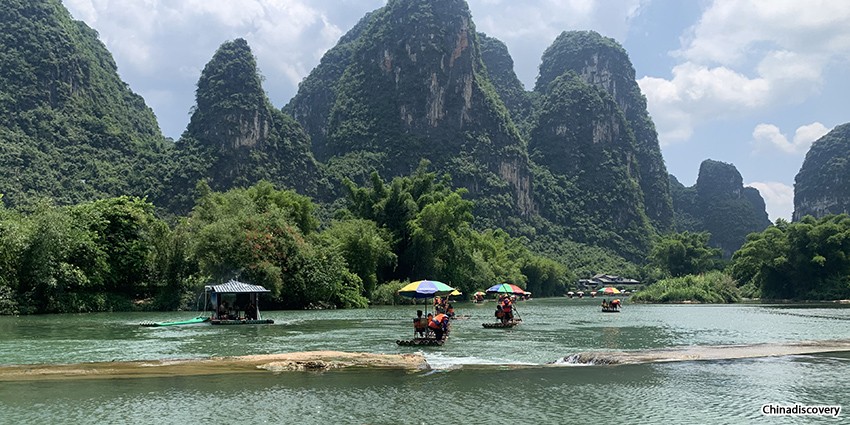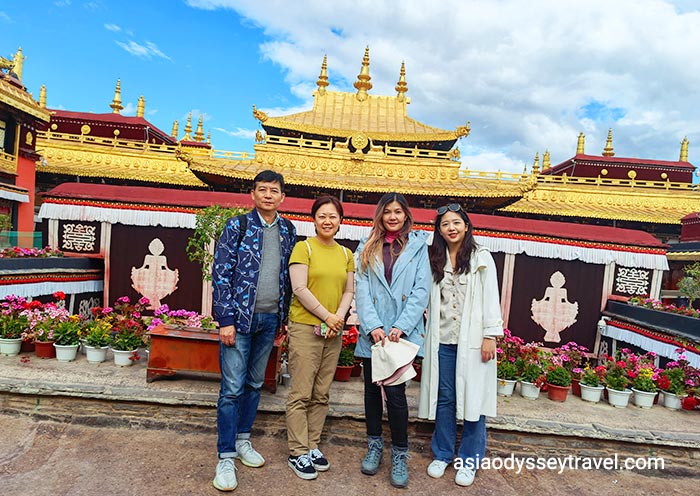20 Pro Facts To China Flavorful Food Culture
Wiki Article
The Best Regional Cuisines To Try In China: Top 10 Tips
1. Learn about the Eight Culinary customsTip: Get familiar with the eight major Chinese cuisines : Sichuan Cantonese Shandong Jiangsu Fujian Hunan Anhui Zhejiang. Each is distinct in its dishes, flavors, and techniques.
Pro: Helps you plan your dining experiences in accordance with your tastes.
Con: It's difficult to remember every detail of the meals.
2. Get Local Specialties to the forefront
You should try the local cuisine, whether it's Peking Duck, Xiaolongbao, or Hot Pot located in Chengdu.
Pros Cons: The experience will be authentic, and rich in culture.
Con Cons: Your exploration of alternative cuisines may be limited while you're in a specific area.
3. Take note of regional flavors
Tip: Sichuan cuisine is spicy and numbing, Cantonese food is fresh and light while Jiangsu dishes are delicate and sweet. Select dishes according to your tolerance to spice.
You can avoid ordering foods that don't match your preferences.
Con: Some flavors may be acquired and require experimentation.
4. Explore Street Food
Note the distinctive street food options available in each city. For example, you may find Jianbing (savory hamburgers) in Xi'an) or Roujiamo(Chinese crepes)in Beijing. Be adventurous and try local foods.
Pro street food is cheap easy to prepare, and gives an insight into the local life.
Con: Hygiene concerns can arise occasionally. Pick vendors who conduct lots of business.
5. Learn Basic Dining Etiquette
Being aware of Chinese eating habits is crucial. For example, having meals with family members, and not putting chopsticks in the rice are all a part of this.
Pros: This indicates that you respect local customs while improving your dining experience.
Con: Took some time to adjust to the new surroundings.
6. Ask locals for recommendations.
Locals will usually know which establishments or dishes are the best in their area. Don't be afraid to seek help.
The best part is that you can discover hidden gems, and not tourist traps.
Con: Language barriers could create communication difficulties.
7. Be prepared to accept inputs that are not familiar.
Use your imagination to discover unusual ingredients in regional dishes. Approach new foods with curiosity.
Pro: You will learn to appreciate Chinese food and broaden your taste buds.
Con: Certain meals might not be suitable for your taste or dietary needs.
8. Allowing Dietary Restriction
TIP: You can make use of Mandarin phrases to communicate preferences or allergies. For example, "Wo bu Chi Rou" (I do not consume meat).
Pro: Provides you with secure dining experiences, tailored to your individual needs.
Cons: Certain foods may be limited in their choices for those with specific food restrictions.
9. Serve regional beverages with your food.
Try local drinks, such as Shaoxing wine from Zhejiang or tea from Fujian.
Pro: Enhances your culinary experience and improves overall dining experience.
Con: Tastes that are strong, such as baijiu, aren't suitable for everyone.
10. Avoid Overordering
Tip. Chinese dishes tend to be served in family-style. Therefore, it is best to order with caution. You can always increase the amount of food you'd like.
Cons: Food waste can be avoided and a variety of dishes can be sampled.
Cons: There is a temptation to purchase too much food due to the large variety.
Benefits of exploring regional food styles in China
Different Flavors: Enjoy a wide array of flavors, techniques, and ingredients.
Cultural Insight: Deepening your understanding of regional traditions and the identities of each.
The price of many local dishes is affordable.
Experiences that will last forever: Try the most famous dishes that are indigenous to their roots. This will create lasting memories.
Pros and Cons of Exploring the regional Cuisines in China
Hygiene concerns Some street food or restaurants may fail to meet international sanitation standards.
Language Barriers: The menus and explanations are often only available in Mandarin. It makes it challenging to order.
Unusual Ingredients : Some people find certain flavors or textures difficult to digest.
Dietary restrictions: Vegetarians who are strict or vegans, as well as those with food allergies may struggle in certain areas.
You can tackle any challenge with these strategies, and remaining adventurous. Read the most popular discover this must-visit location for more info including xi an travel tips, eating in urumqi, tours for the disabled, shopping in suzhou, jiuzhaigou, shanghai portman acrobatic show one of the best acrobatic shows in shanghai, eating in dunhuang, eating in fuzhou, datong beijing high speed railway schedule and timetable, ancient football in china cuju in ancient china and more.

Top 10 Tips To Follow When Visiting Famous Temples In China During The Holiday Season
1. Visit during off-season. (Autumn/Winter).Tip. It is the time when fewer tourists visit and the weather tends to be more pleasant.
Pro: It's quieter and gives peace and tranquility.
Cons: The weather may be colder which can make outdoor temple visits less comfortable.
2. Be prepared for weather extremes
Tip: Temperatures can vary greatly in different seasons. The winters can be very cold while summers be hot. Prepare according to the weather forecast.
Pro: Your visit is going to be enjoyable and relaxing since you'll be well-prepared to face any weather.
Con: Packing for the extremes of the seasons isn't easy, particularly in light travel.
3. Visits in the Spring and Summer to enjoy Vibrant Flora
Tips: Make sure to visit temples during the spring and summer months for gorgeous gardens, flowering flowers and lush landscapes around temples.
The temple grounds are a beautiful place to visit.
Con: Summer can be very hot and packed, especially during national holidays.
4. Consider Festivals and Special Events
Tip: Plan a visit during traditional celebrations that are celebrated, like the Chinese New Year in January/February or the Mid-Autumn Festival in September. These times offer special rituals, ceremonies and an opportunity to take in the temple's vibrant social life.
Pro The temples are typically vibrant and full of traditional celebrations, providing a unique experience.
Con: During the festival season temples may become very busy and accommodation costs may increase.
5. Avoid Peak Holiday Seasons
Tip Beware of visiting during peak tourist seasons (e.g., Chinese New Year, Golden Week in October) when temples can be filled with local as well as international visitors.
Pros: Relaxed visits without the crowds. Provides an uplifting experience.
Con: You could not be able to attend certain festival events that take place during peak times.
6. Check Temple Closures during Winter
Some temples are closed or may have limited opening hours in winter. Always verify the time ahead.
It stops you from taking unnecessary trips and helps you plan your other activities.
Cons: There could be a cut in operating hours or temples closed entirely to allow reconstructions.
7. Early Morning Visits During Summer
Tips: If you are visiting in the summer months, make sure to get there early in the early morning to avoid the hot midday heat. Many temples open their doors at dawn. The ambience is more peaceful and less crowded.
Benefits: Enjoy peace and quiet without the noise of.
Cons: The early wake-up time might not be suitable for everyone.
8. Prepare for rain in the summer months.
A tip: Summer can bring heavy rains, especially in southern China. If you're visiting during this season make sure you have an umbrella and rain gear.
Pros: The temple remains gorgeous even if it's pouring rain.
Con: The rain can disrupt outdoor activities and make the grounds of temples slippery.
9. Visit Temples within the Mountainous Areas in Autumn
Autumn foliage and pleasant weather make it a great time to visit temples in the mountains (e.g. Mount Wutai, Mount Emei).
Pros: The scenic views and cooler temperatures make outdoor exploration and hiking more enjoyable.
Con: The most popular mountains temples still draw crowds especially on weekends or during the holidays.
10. Check out the Lunar Calendar for Specific Events
TIP: Many temples use the lunar calendar of China, and certain ceremonies or events are linked to specific dates. Search the calendar for important temple events like Buddha's Birth as well as the Lantern Festival and other ceremonies.
Pros: Greater understanding of the spiritual practice of Buddhism and other the unique cultural experiences.
Cons: It may require more planning and time to match your travel dates to the lunar calendar.
Benefits of the experience of visiting Chinese temples in the time of the season
Less crowds. Off-season travel is a quieter, more contemplative experience.
Cultural events: These festivals offer a deeper insight into the local religion and culture practices.
Scenic Beauty - Spring and autumn are great time to go. You can enjoy beautiful landscapes as well as vibrant gardens at temples.
The temperature is generally cooler in autumn and winter.
Pros and Cons of Seasonal Trips to Chinese Temples
Unpredictable weather: Winter can be extremely cold and the summer is too hot. This could impact your satisfaction.
Temple Closures: Some of the temples have restricted hours or are closed during extreme weather conditions or during off-season.
Crowded During Festivals: Popular festivals and holidays can bring large crowds, making it harder to fully experience the temple's peaceful atmosphere.
Certain events are restricted - certain events and ceremonies are only scheduled during specific seasons.
Planning your visit to the famous Chinese temples in the appropriate time of year will ensure that you have a memorable and enjoyable experience. Understanding the seasonal dynamics can help you get the most out of your trip, whether you are looking for peace and quiet or celebrations. Check out the top find everything you need to know about this site for site recommendations including weaponry of iron age iron cannon iron armour and warships, guilin travel tips, shopping in tibet, chinese kites a phoenix shaped kite, chinese furniture the development history of chinese furniture, honey lake country club, eating in zhengzhou, chinese kites a phoenix shaped kite, kweichow moutai the best and most famous liquor in china, shopping in tibet and more.
